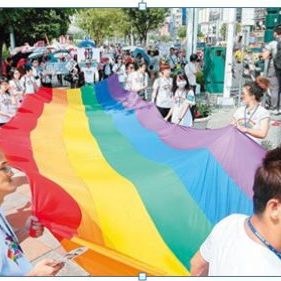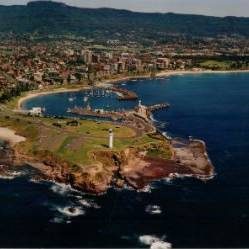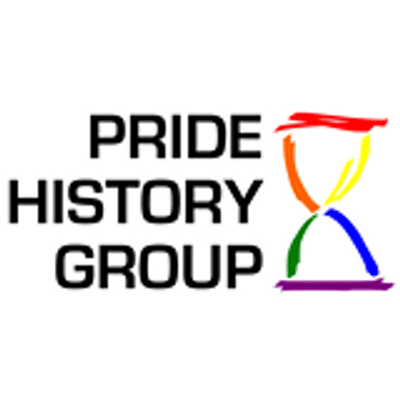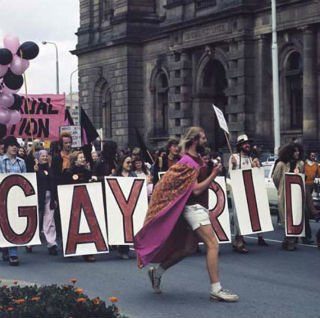 Gay Times Are Here Again: an exhibition celebrating the 40th anniversary of the 1973 Adelaide Gay Pride Week.
Gay Times Are Here Again: an exhibition celebrating the 40th anniversary of the 1973 Adelaide Gay Pride Week.
A selection of Archives photographs of Adelaide’s first Gay Pride Week events in 1973 was recently included in an exhibition at the State Library of South Australia – Gay Times Are Here Again: an exhibition celebrating the 40th anniversary of the 1973 Adelaide Gay Pride Week.
As a member of the Australian Lesbian and Gay Archives management committee, Nick knew that the photographs were a unique collection from the early gay liberation period. ‘These images are scarce,’ he said. ‘I’m not aware of any other photographs of Adelaide Gay Pride Week events in any public collection.’
The images were taken by photographers with the Australian News and Information Bureau and feature the 1973 Gay Pride Parade held in Adelaide.
‘The exhibition is intended to both celebrate the anniversary of the high point of the first wave of gay liberation in Australia and show a long history of gay rights protests before the well-known events of the first Sydney Mardi Gras in 1978,’ said Nick. ‘That event included a riot and 53 arrests by police. But there were also several arrests during the 1973 Sydney Gay Pride Week.’
Gay Times Are Here Again was part of a series of commemorative events in Sydney, Melbourne, Adelaide and online relating to the 40th anniversary, which Nick coordinated on behalf of the community-based and volunteer-run Australian Lesbian and Gay Archives.
‘The 1973 Gay Pride Week was initiated by Sydney Gay Liberation and was taken up enthusiastically in different cities around Australia, including Melbourne, Brisbane and Adelaide,’ he said.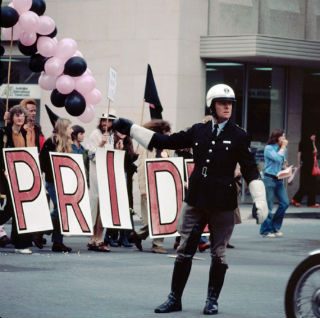
As well as working as an archivist, Nick is an experienced curator who has previously worked at the National Gallery of Australia, National Library of Australia, and with the Performing Arts Collection, Arts Centre Melbourne. He has been with the Archives for two years, managing archival descriptions and personal records in the Melbourne Office.
‘We have such a rich collection of records here in Melbourne, particularly among the personal records,’ he said. ‘They include letters from people such as Gandhi and Katherine Hepburn, to Winston Churchill and Prince Charles, through photographs of the British Raj to the Mexican Revolution.’
However, he acknowledges that material relating to gay and lesbian life is not always easy to locate in the Archives’ collection.
‘The terms used in previous eras are not the terms we use now,’ he explained. ‘Historically, words such as “invert” or “pervert” may have been used for gay men, or indeed “camp” to those in the know, so attempts to locate records relating to gay and lesbian life can be very hard and time-consuming. Heavy government censorship of gay and lesbian publications and literature was also discussed in Canberra’s Archives’ Banned display.
‘There is much more that could be uncovered in the Archives relating to gay and lesbian life. Research currently being conducted by researchers includes studying homosexual activity by soldiers during World War II. There is the opportunity to conduct further research into this untapped area of the Archives’ collection.’


